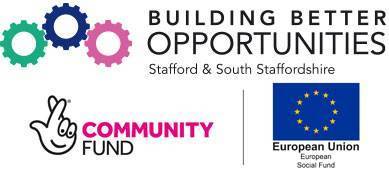What happens to my debt when I die? Debt
If you have debt, you may be worried about what happens to it when you die. In particular, you may be concerned that your debts will become the responsibility of your spouse, partner, or your children following your death. In this article, we aim to explore what happens to debt when you die and provide some practical help and advice on managing debt now.
As you might imagine, there are lots of different conditions regarding debt and whose responsibility it becomes following a person’s passing. But, as a general rule, when a person dies, the debts they leave behind are paid (in part or fully) with the money left behind in what is known as their estate.
What is a person’s estate?
Estate refers to any money left in a person’s bank account upon their death, savings, money from life insurance claims, investments, properties and possessions.
Upon a person’s death, someone will be appointed as ‘executor’ of their estate. An executor can be a family member, friend, or solicitor and their legal responsibility is to ensure that money left behind is used to pay off outstanding debt, with what is left over being given to named people in the will.
Will my partner, children or family members become responsible for my debt when I die?
In all cases, debt should be paid in priority order until the estate runs out of money, or all debts are paid. If there is insufficient assets or money within the estate, in most cases the debts will be written off by the lender. Debt will not automatically pass on to any surviving relations, unless they are responsible for the debt too (i.e. they acted as a guarantor or are a co-signatory of the debt).
What happens to my mortgage when I die?
If you are the sole owner of your home but there is still money left on your mortgage, then your estate may be used to pay off the outstanding debt. In some cases, life insurance payouts will cover your mortgage. However, in the absence of a life insurance claim, the property may have to be sold to cover the outstanding amount.
What happens to rent arrears when I die?
If you are in rent arrears at the time of your death, they will be paid from your estate. If there are no assets to pay for these, the landlord does not have a legal right to pursue family members for the outstanding debt.
If you rent a home with another person, and they are named on the tenancy agreement prior to your death, then they must pay off any rent arrears.
What happens to my loan and credit card debt when I die?
Once priority debts have been paid from your estate, only then will repayments be made for this type of debt. If you have secured a loan with the help of a guarantor, if there are insufficient assets to pay this off, they then become liable for the outstanding amount. Similarly, if you hold a credit card with someone else, the debt will become their responsibility.
What happens to my savings when I die?
If you have a savings account, any money held within it will form part of your estate and this will be used to pay off outstanding debts before any money or assets are given to those named in your will. This is the same with any money in your current account, investments and ISAs, etc.
Get help and advice with your finances
Debt can be a difficult thing to deal with. It can feel overwhelming and hopeless. Similarly, you may feel anxious about whose responsibility your debt becomes when you die. In many cases, debt will not pass on to your partner, spouse or children following your passing. Although your estate (the money and assets you leave behind) will be used to pay off these debts before any money is given as inheritance to named individuals in your will.
If you need practical help and advice to support you in getting your finances in order, talk to us today. At Building Better Opportunities in Stafford and South Staffordshire, we can support you to manage your debts and help you to put the right measures in place to protect your family and loved ones in the event that something happens to you. To find out more about how we can help, take a look at our Financial Advice page, or contact us using the form below. Alternatively, our advocates at one of our drop in sessions across the region can support you. Take a look at our Drop In Sessions page to find your nearest Work Club.
